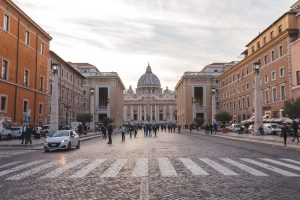FoRB Podcast: Business and Religious Rights
In Episode 2 of The FoRB Podcast, Dmytro Vovk and Merilin Kiviorg invite Matteo Corsalini (University of Siena) to discuss religious freedom in the workplace and, more broadly, the business approach to FoRB protection. Matteo explains the economic aspect of FoRB, elaborates on the trend in EU Court of Justice (EUCJ) jurisprudence to expand the discretion of public and private employers in FoRB matters, and traces the EUCJ’s approach to the Court’s nature and history. He also guides Dmytro and Merilin through legal reasoning developed by the EUCJ, the European Court of Human Rights, and the U.S. Supreme Court in similar cases.


